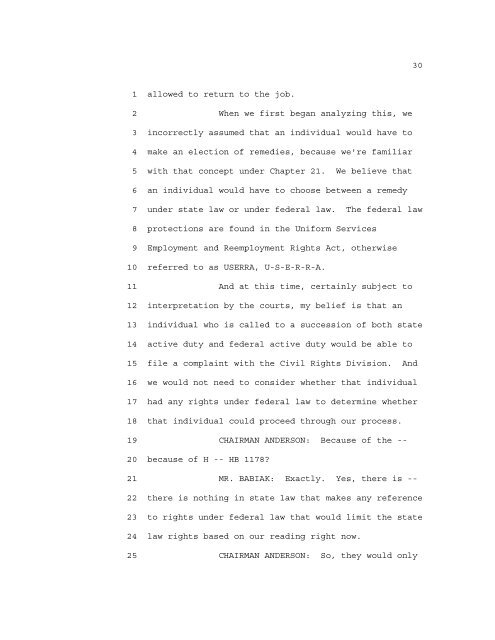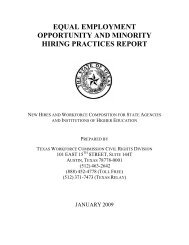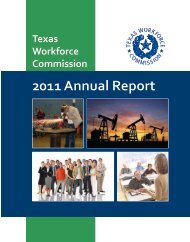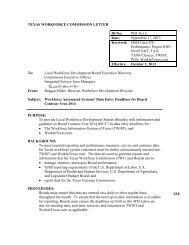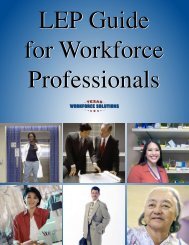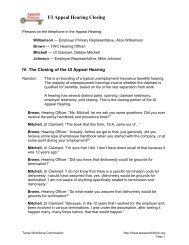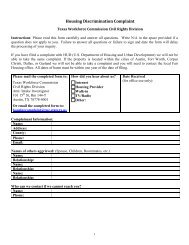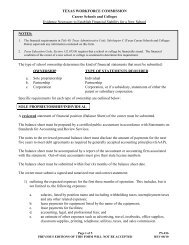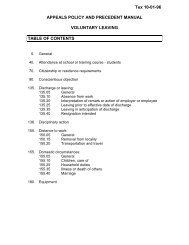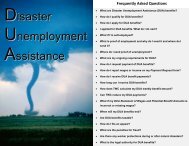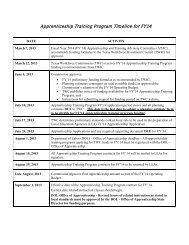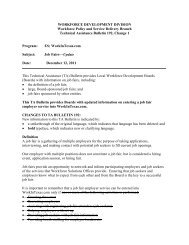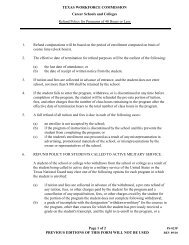January 16, 2013 - Texas Workforce Commission
January 16, 2013 - Texas Workforce Commission
January 16, 2013 - Texas Workforce Commission
You also want an ePaper? Increase the reach of your titles
YUMPU automatically turns print PDFs into web optimized ePapers that Google loves.
30<br />
1 allowed to return to the job.<br />
2 When we first began analyzing this, we<br />
3 incorrectly assumed that an individual would have to<br />
4 make an election of remedies, because we're familiar<br />
5 with that concept under Chapter 21. We believe that<br />
6 an individual would have to choose between a remedy<br />
7 under state law or under federal law. The federal law<br />
8 protections are found in the Uniform Services<br />
9 Employment and Reemployment Rights Act, otherwise<br />
10 referred to as USERRA, U-S-E-R-R-A.<br />
11 And at this time, certainly subject to<br />
12 interpretation by the courts, my belief is that an<br />
13 individual who is called to a succession of both state<br />
14 active duty and federal active duty would be able to<br />
15 file a complaint with the Civil Rights Division. And<br />
<strong>16</strong> we would not need to consider whether that individual<br />
17 had any rights under federal law to determine whether<br />
18 that individual could proceed through our process.<br />
19 CHAIRMAN ANDERSON: Because of the --<br />
20 because of H -- HB 1178?<br />
21 MR. BABIAK: Exactly. Yes, there is --<br />
22 there is nothing in state law that makes any reference<br />
23 to rights under federal law that would limit the state<br />
24 law rights based on our reading right now.<br />
25 CHAIRMAN ANDERSON: So, they would only


